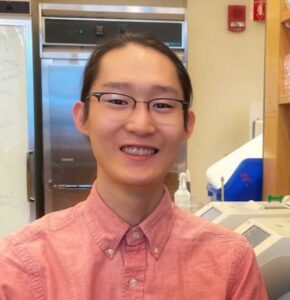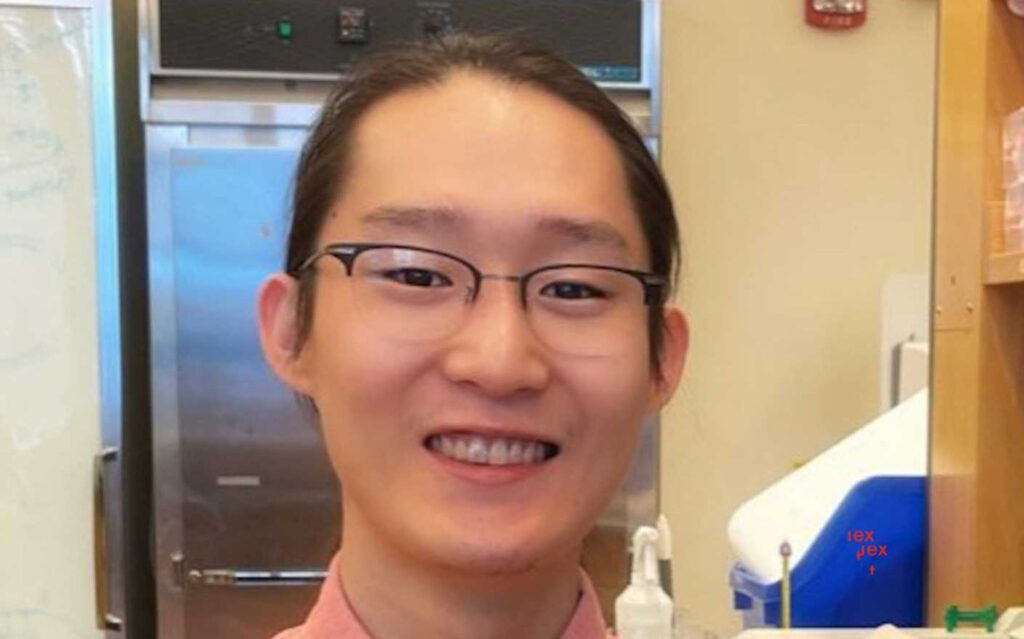We’re taking time to get to know the members of the GSA’s Early Career Scientist Committees. Join us to learn more about our early career scientist advocates.

David Daesung Lowe
Career Development Subcommittee
Harvard Medical School
Research Interest
I grew up in a low-income, single-parent household, where my mother was an undocumented immigrant. We struggled greatly after the recession in 2009. Having three meals a day was not guaranteed every day. Fortunately, in high school, I had the opportunity to do an internship in the research lab of Dr. Seema Tiwari-Woodruff, during which I studied multiple sclerosis. The research lab was a safe haven where I could indulge my curiosity while detracting from issues at home. My research mentor helped spark my interest in science and specifically neuroscience by providing the necessary training and knowledge. I poured all my energy into exploring the brain and studying the methods available to visualize it, such as histology and immunofluorescence. It was awe-inspiring to be able to visualize these exceedingly small molecules called proteins and DNA and learn how this process utilizes biology, biochemistry, and even physics! This fascination in visualizing extremely tiny but vital molecules in animals prompted my pursuit of biology at UC Santa Barbara, where I met remarkable professors and lifelong mentors, including Dr. Denise Montell, Dr. Stuart Feinstein, and Dr. Herbert Waite. At UC Santa Barbara, I learned how to dissect scientific papers, and pursue independent research projects, which developed into a publication and presentations. I also experienced the thrill of developing new scientific questions. Furthermore, I was involved in summer research programs, such as UC LEADS and the Rockefeller University SURF program, which financially and academically supported my interest in research and graduate school.
Now, I’m a fourth year Ph.D. candidate in Dr. Scott Kennedy’s lab at Harvard Medical School unraveling the role of RNA in epigenetic inheritance and silencing. My Ph.D. thesis focuses on developing a new sequencing method to identify endogenous RNAs appended with poly(UG) tails at the 3’ end, called pUG RNAs. These pUG RNAs are vectors for epigenetic silencing and can modulate gene expression without changing the sequence of the gene at the DNA level in C. elegans. By understanding the endogenous population, I can uncover the basis of how these RNAs can be targeted and transmitted in C. elegans and other animals with similar systems, such as plants.
As a PhD-trained scientist, you have many career options. What interests you the most?
As a scientist, my main research interest is understanding and expanding the knowledge of RNA biology. In recent years, the understanding of RNA has been a major pivot in public health, such as the development of RNA vaccines as well as research for COVID-19. I wish to expand the knowledge of RNA biology in a broader sense that isn’t tied down to a particular virus. Some research questions that inspire my research focus in RNA biology include: How does RNA act as epigenetic signals for gene regulation? How does RNA structure modulate gene expression? How do cells recognize toxic RNAs? In the future, I hope to lead my own research group with a focus on these types of questions in RNA biology. With the help of my previous experience as well as graduate training, I wish to combine the multidisciplinary skill sets that I have developed over the years, including computational biology, genetics, and biochemistry.
In addition to your research, how do you want to advance the scientific enterprise?
Aside from scientific goals, I wish to support underrepresented and low-income students pursuing careers in science. At my university, I became one of the first undergraduate peer mentors who routed students to diverse resources and opportunities. The fact that all my classmates (also peer mentors) were either first-generation or low-income students, developed a sense of unity and purpose, motivating us to facilitate others with similar backgrounds. We helped students navigate research opportunities by building their writing and communication skills. In my final year, we developed the university’s first, undergraduate research journal driven by a group of first-generation and low-income students and professors. I found that being able to identify with other individuals with similar backgrounds was a big motivation and confidence booster during my time in university. These opportunities were due to the support of Dr. Anne Charity-Hudley, who was the major sponsor for both the peer mentors and undergraduate research journal. I am also involved in the Health Professions Recruitment and Exposure Program (HPREP) at Harvard, where I help identify high school students from disadvantaged backgrounds in the Boston area. HPREP encourages these students to pursue careers in science and medicine by connecting them with mentors from Harvard and providing them with resources to aid in college admission.
I wish to continue helping students who lack resources due to their background but have the drive and passion to pursue their career goals. I find that the hardships and experiences of first-generation and low-income students are incredible assets for the broad science enterprise. The perspective of these new and diverse generation of scientists will be vital in tackling the inherent biases sewn into the academic ivory tower. Ultimately, I hope to foster an environment that allows scientists from diverse backgrounds to feel a sense of belonging in the scientific community, and serve as inspiration for each other, so that they can continue blazing their own career paths.
As a leader within the Genetics Society of America, what do you hope to accomplish?
As a leader within GSA and as a member of the Career Development Subcommittee, I hope to expand the opportunities and knowledge of alternative career paths in science. A lot of challenges still exist in the current academic system for many disadvantaged scientists. One major challenge in academia is the financial burden for postdocs. It is difficult to get a tenure-track position and even more so to be tenured, which is the goal in academia. The time it takes for many scientists to work as an underpaid postdoc is too long, and the benefits are unrealized until later in their career. For disadvantaged students, who are the sole or major financial source for their families, these challenges make it extremely difficult to pursue tenure-track positions. They typically do not have independent financial resources, like those from a high-income family, to pursue a low-income position in the hopes of applying to a tenure-track position. In this manner, alternative career paths that can still provide financial benefits and intellectual rigor are important for many Ph.D.-trained scientists who lack the resources to continue pursuing an academic career, especially scientists not educated at ivory tower institutions.
Previous leadership experience
- Certificate of Distinction in Teaching by Derek Bok Center for Teaching and Learning at Harvard University—Teaching Fellow (2021)
- Board member for UCSB’s first undergraduate research journal (2018–2019)
- Member of UC LEADS Communication Committee (2017–2018)













